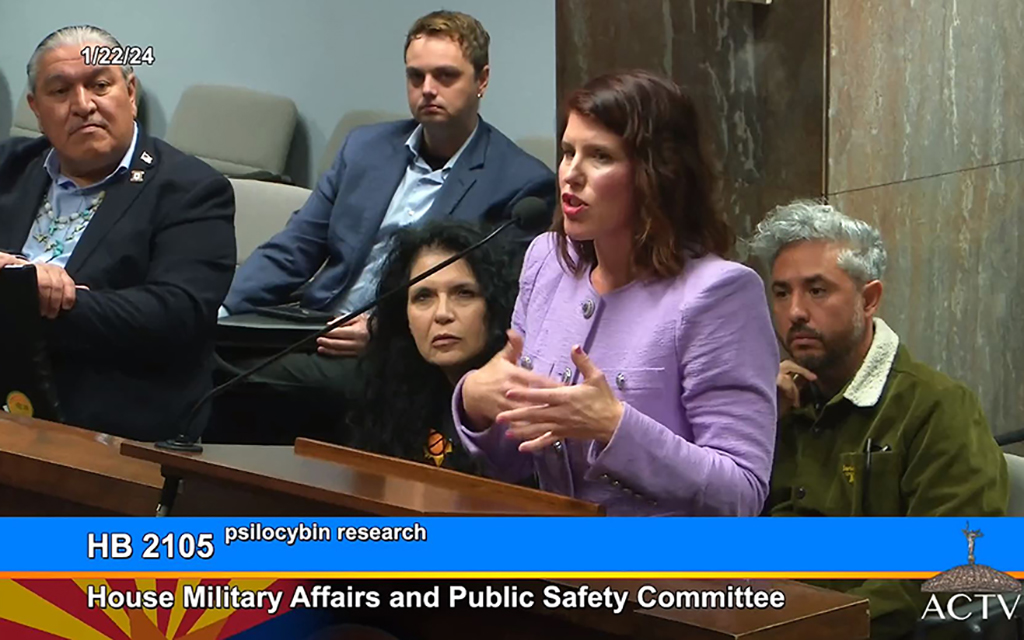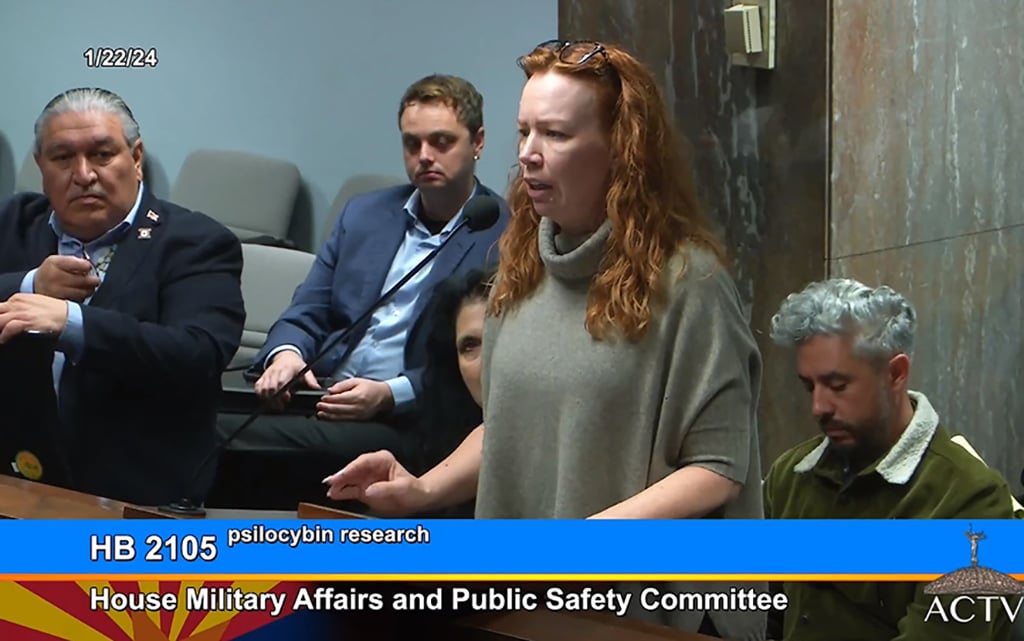
Dr. Dani Cabral, a member of the state’s Psilocybin Research Advisory Council, told lawmakers Monday that it can take months just to get approval for research, but state funding is currently set to run out this summer. (Photo courtesy Arizona Legislature)
PHOENIX – A House panel voted Monday to extend the deadline on Arizona’s first-in-the-nation program to research medical uses of psilocybin, or “magic mushrooms,” a hallucinogenic currently classified by the federal government as a Schedule I illegal drug.
The 11-3 vote by the Arizona House Military Affairs and Public Safety Committee comes a little more than a week before the deadline to distribute $5 million in state grants for the research – research that advocates say would be impossible to complete with the current June 30 program sunset.
The bill would extend the program through July 1, 2026, if it wins final approval.
Supporters of the extension said a lapse of funding this summer would mean “we are in a position here where we have $5 million, and few researchers will be awarded these funds, and they will have four months to complete a random control trial,” said Dr. Dani Cabral, the principal investigator at IMA Clinical Research.
Psilocybin is a chemical found in some North and Central American mushrooms that induces hallucinations, according to the Drug Enforcement Administration. The federal government categorizes it as a Schedule I drug, along with drugs like heroin, LSD and marijuana that have “no currently acceptable medical use and a high potential for abuse.”
But a report by the National Institutes of Health cited a study that said using synthetic psilocybin showed that it improved the conditions of 57% of subjects who were suffering from severe depression. A study by Johns Hopkins University researchers showed that psilocybin could help with major depression for up to a year.
Unlike those studies, which used lab-produced psilocybin, the Arizona studies would research the use of whole mushrooms. The 2023 bill that initially approved funding for the study said the money could go toward researching the drug’s use for everything from post-traumatic stress disorder to pain relief to eating disorders.
Cabral pointed to the months it will take to receive federal approval for Schedule I testing and DEA permits to grow the mushrooms in the first place, which is why more time is needed to conduct the whole mushroom clinical trial.
Without a lapse in funding, she told the committee Monday, researchers would likely select their first patient by August and could have a study group of 35 subjects within a year to 18 months.
Danielle Raki, an Arizona veteran who had to go overseas to get psilocybin therapy, told the committee she supports the state’s “pioneering research” into a drug she believes can improve the mental health of American veterans and first responders.
“My struggle was PTSD. It (psilocybin therapy) has helped me come out the other side with greater understanding, a greater peace; I have a greater peace that I have never known prior to the last few years,” Raki said in her testimony.
“I had to leave this state and this country for this medicine, and it was 100% worth it,” she said.
Raki said her husband, a first responder, took an interest in psilocybin treatment after seeing her improvement. But as a first responder, he is prohibited by current federal and state regulations from pursuing the treatment, forcing him to choose between it and his pension.

Danielle Raki, a veteran, had to leave the country to get psilocybin treatment for her PTSD but said it was “100% worth it,” and encouraged lawmakers to keep the state’s research program alive. (Photo courtesy Arizona Legislature)
But some committee members debated whether funding the research was still a top priority at a time when the state could be facing a deficit of up to $1.7 billion over this fiscal year and next.
“Arizona is currently facing a budget shortfall, and that means all of us have to make difficult decisions to proceed,” said Rep. Marcelino Quiñonez, D-Buckeye, one of three members who voted against extending the program. “So, while I appreciate the intent of the bill, this was passed last year when we had a surplus.”
Despite the shortfall, other lawmakers said the research is not a luxury but a necessity to help those who need it.
“There are a lot of other things that I feel that we should claw money back from. I don’t think that this is necessarily one of them,” said Rep. Stacey Travers, D-Ahwatukee.
“As a representative of the veteran community, going back to World War II, there has been a lot of unarticulated and undiagnosed trauma that has never been able to quite heal,” she said. “And if there is something that is going to help the community reconcile itself with the ravages of their experience, then I am all for it.”


